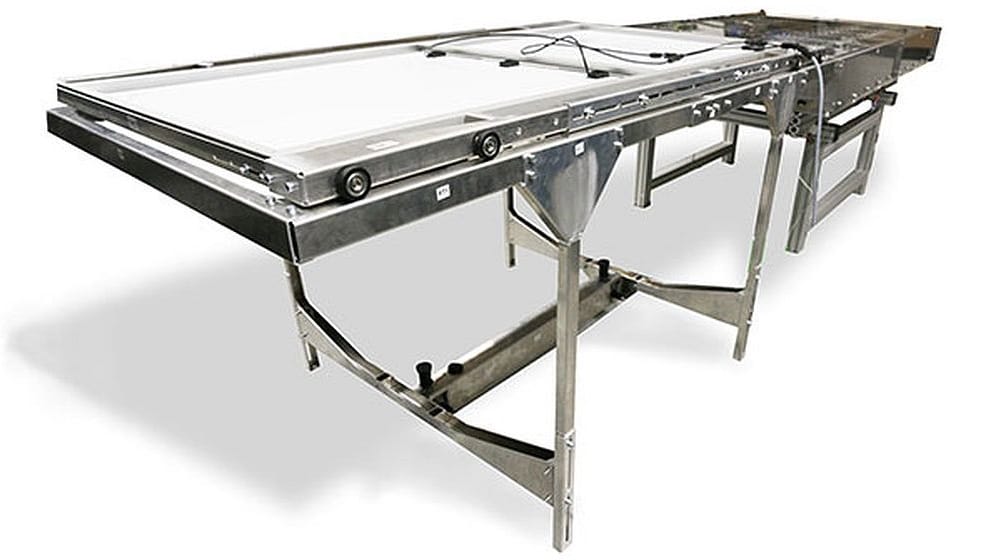From pv magazine Germany
Germany's TÜV Rheinland has developed PV TravelLab, a mobile laboratory to test solar modules.
The small, portable lab can be completely dismantled, so it can fit into seven transport cases for easy transport as airplane luggage. TÜV Rheinland jointly developed the testing system with Germany's MBJ Solutions, which specializes in testing and measurement systems for the PV industry.
TÜV Rheinland has claimed that the portable laboratory can conduct on-site module tests according to relevant IEC standards – at the port, shortly before installation, and even at solar project sites. Test data can be made immediately available on site for detailed assessments. The only requirement is a testing environment that can be darkened, like an empty freight container, for example.
Popular content
PV TravelLab is designed to test up to 150 to 200 solar modules per day and combines the latest measurement technologies for PV devices. The light source is certified according to IEC 60904-9 Ed.3 and ensures power measurements with very low measurement uncertainty, even with new module technologies.
With a measuring range of 0 V to 250 V and 0 amperes to 20 amperes, the testing lab can assess both highly efficient crystalline solar panels and thin-film PV modules. For PERC or heterojunction PV modules, TÜV Rheinland's own “Dynamic I-V” process can be used. Bypass diode tests are also possible.
For electroluminescence measurements, the modules are pushed over EL cameras in a measuring frame mounted on rollers, TÜV Rheinland said. Two 5-megapixel cameras generate images of the PV modules to quickly highlight cell cracks, as well as problems in the connections of cells, or potential induced degradation (PID) and light and elevated temperature-induced degradation (LeTID). The portable lab can also be used to conduct EL analysis at 10% of the nominal short-circuit current, thanks to the system's sensitive cameras, TÜV Rheinland claimed.
This content is protected by copyright and may not be reused. If you want to cooperate with us and would like to reuse some of our content, please contact: editors@pv-magazine.com.


is it commercially launch? how much price?